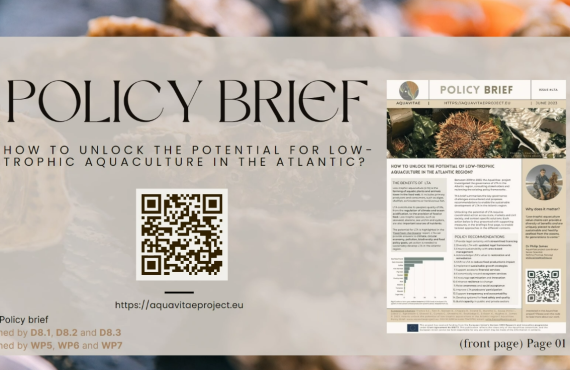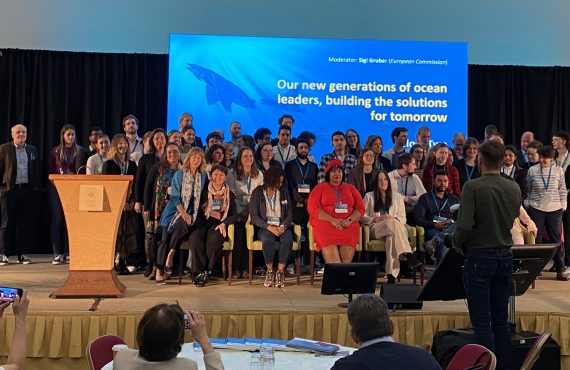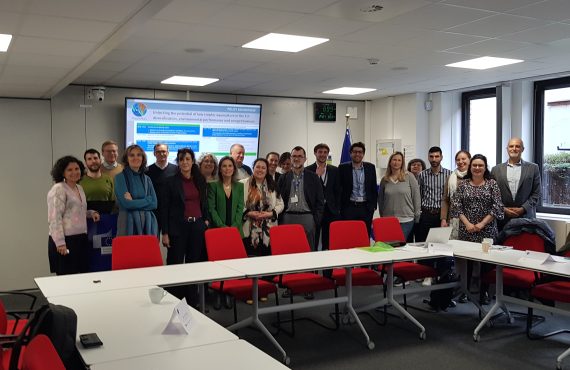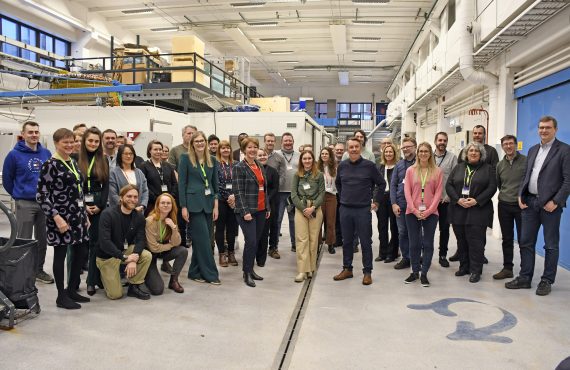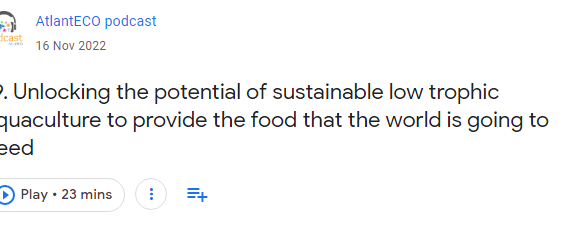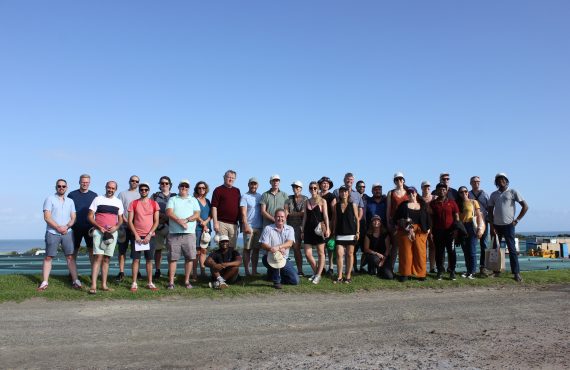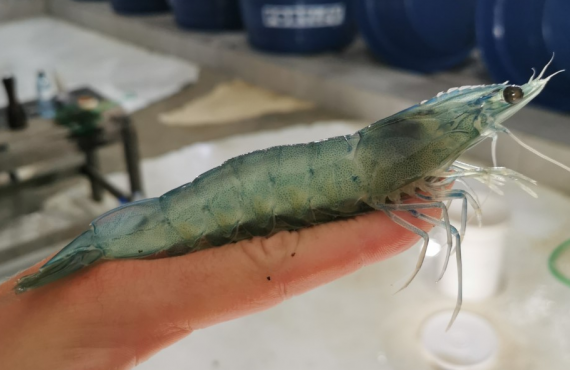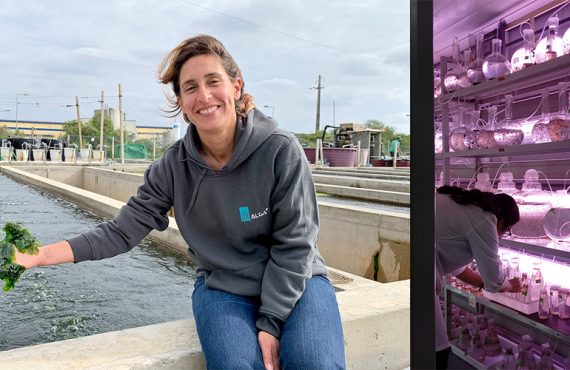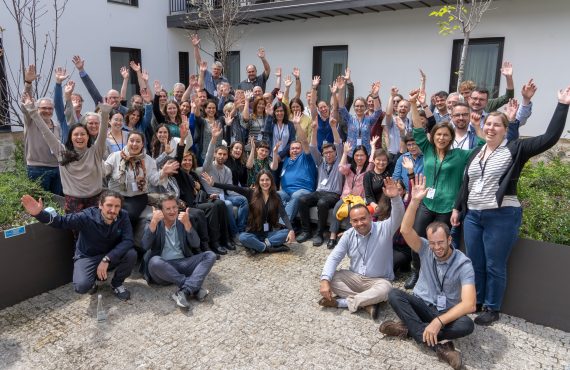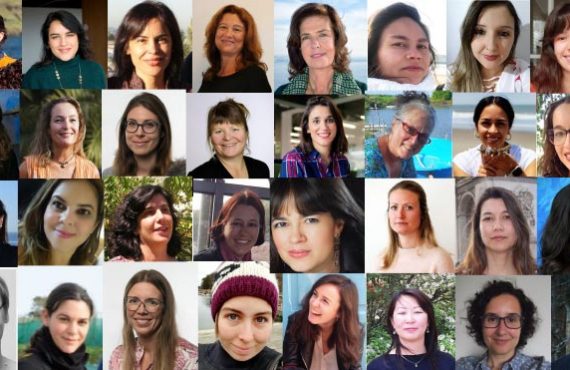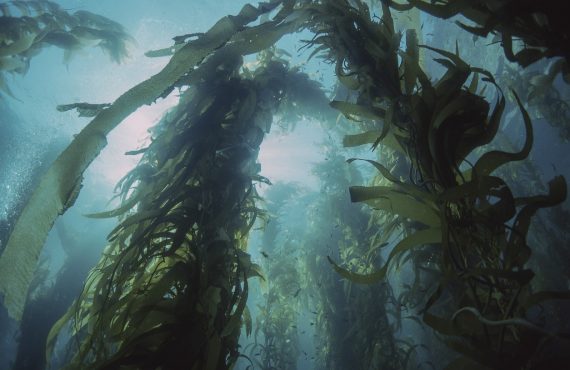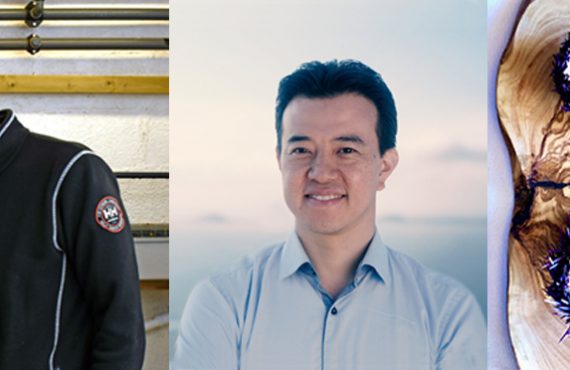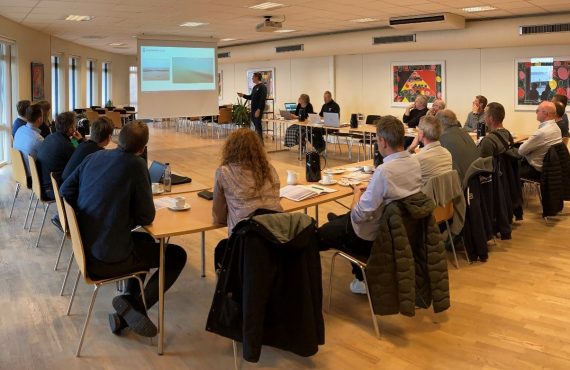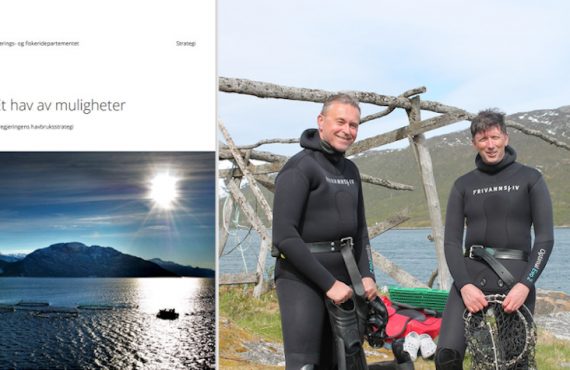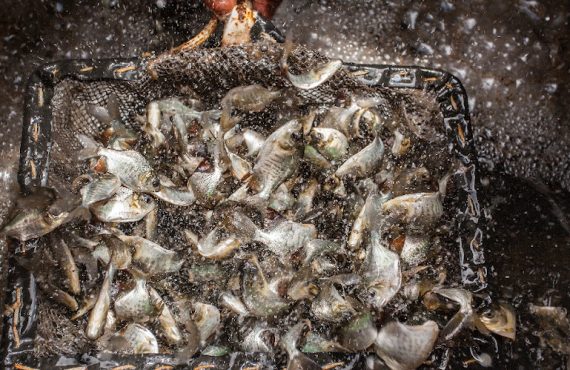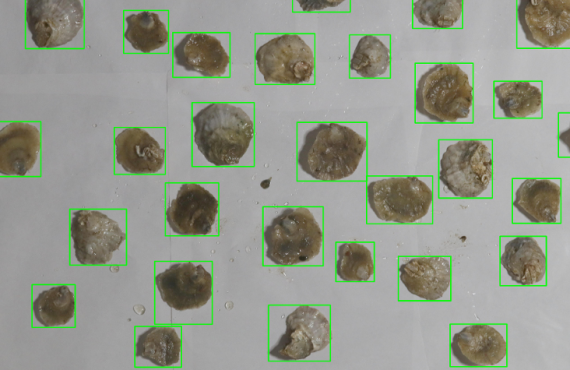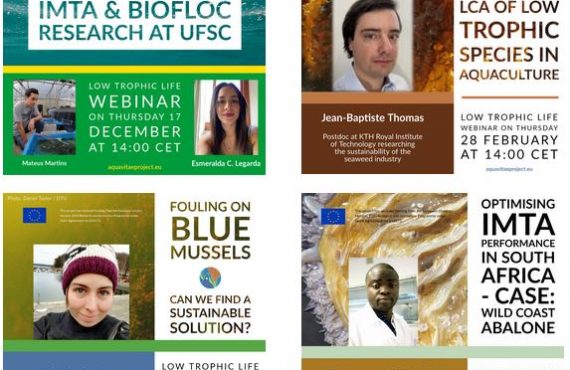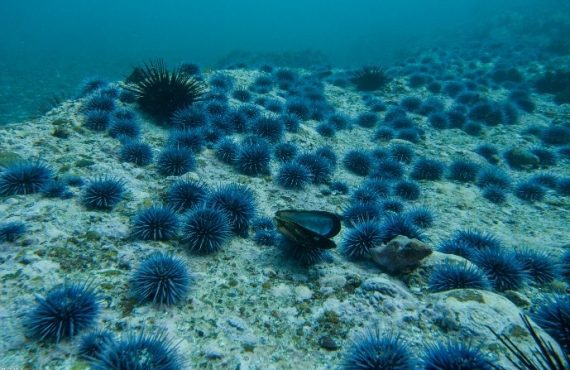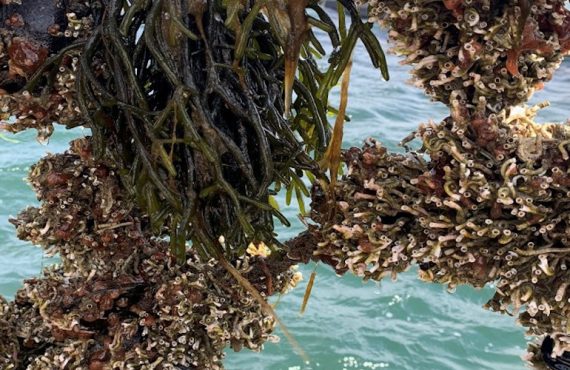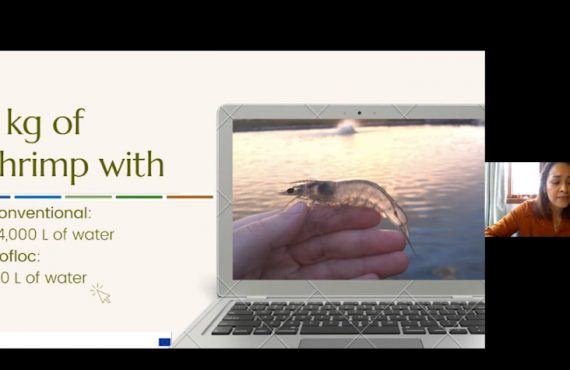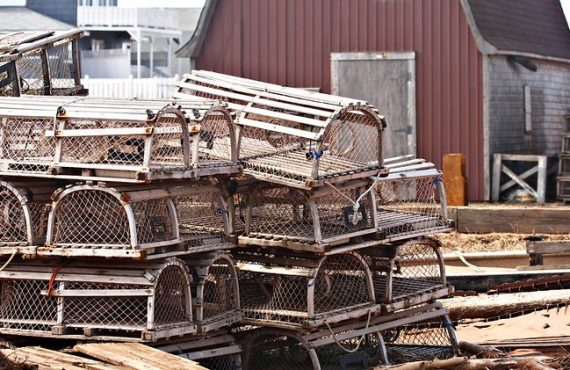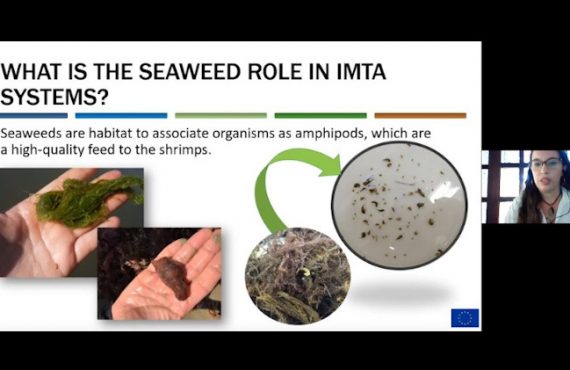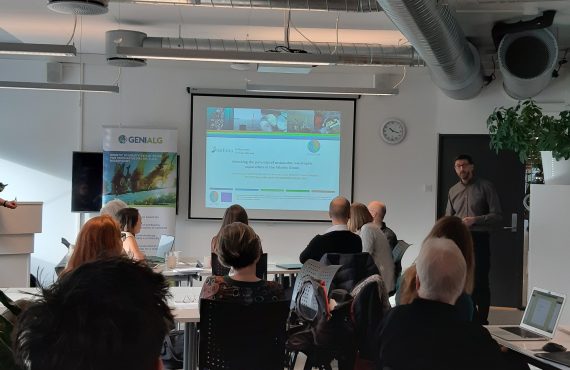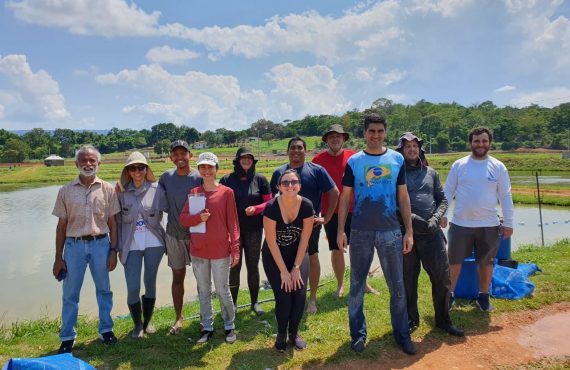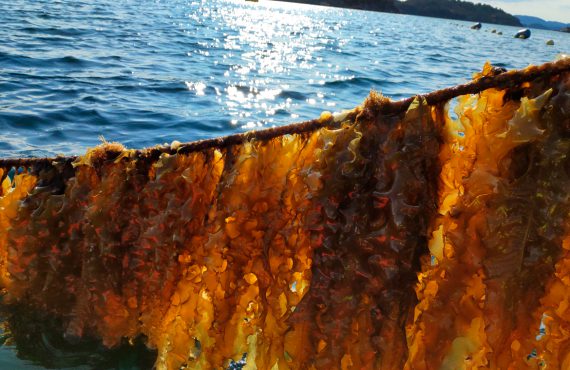Funchal, in the island of Madeira (Portugal) was the place where Europe Aquaculture celebrated 2021 edition
By Gercende Courtois de Viçose, ULPGC, leader of the land-based IMTA case study
More than 1400 participants from 57 countries met in Aquaculture Europe 21. This annual event organized by the European Aquaculture Society took place in the island of Madeira, Portugal, in October. In the 2021 edition AquaVitae members participated some posters that showed their research work.
During the IMTA and Aquaponic session, chaired by Maria Emilia Cunha (IPMA) and Gercende Courtois de Viçose (ULPGC), a total of 13 presentations focusing on IMTA and aquaponics aspects pinpointed the advances taking place in the fields in multiple projects.
The projects: a brief description
The ASTRAL project, investigating IMTA processes in different systems located along the Atlantic Ocean detailed the introduction of new species in IMTA to reach zero waste, reduce the amount of nitrate, phosphorous and organic matter and the development of settlement and post-settlement protocols for various species. ASTRAL also described the introduction of tilapia in shrimp produced in biofloc systems, enabling the control of the biofloc and a reduction of feed cost.
The AQUA&AMBI project described the development of aquaculture in protected wetlands using semi-intensive or semi-extensive IMTA. The life cycle assessment indicated that the impact in terms of water dependence and eutrophication is higher for polyculture systems than semi extensive and semi-intensive IMTA systems.
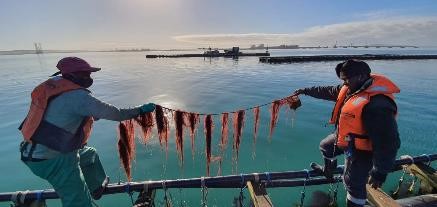
Working in an IMTA production of Gracilaria sp. with mussels – Photo: Cliff Jones
The SIMTAP project, combining saltwater hydroponic production in greenhouses to reduce waste emissions and resources used, highlighted the environmental impact and performances of an integrated system producing sea bream, shrimp, oysters and clams with no water exchange while being fed local raw vegetables supplemented with freshly discarded mussels.
The IMPAQT project, studying the development of intelligent management systems for IMTA to provide innovative monitoring systems able to report data on the IMTA effects. They also designed a handbook to synthesize the information obtained in the project and facilitate the implementation of IMTA protocols.
Finally, the AquaVitae project aiming at developing low-trophic species production along the Atlantic basin, including South America and South Africa detailed the possibilities to introduce sea cucumbers to abalone production in land-based IMTA systems to re-use abalone waste as a source of feed and described the possibilities offered by the production of the red algae Gracilaria in sea-based IMTA system together with mussel production.

Integrated production of sea cucumbers and abalone in Land-Based IMTA system – Photos: G. Courtois
The presentations highlighted the capacity of IMTA to diversify the production systems with a host of direct and indirect benefits as well as the interest in Norway to increase seafood production sharing the same areas to remediate to the Salmon production plateau. Consequently, it led to discussions regarding possible use of seaweed protein, pending quality demonstration, to replace soya as well as food safety issues that could arise with the co-cultivation of multiple species in proximity. This led to the interest in sea cucumber production for their bio-remediation capacity and to the consumption of macroalgae for food considering that, for example, Saccharina latissima produced in IMTA could be of interest for health products with no risk for consumption in terms of allergens.

Kelp or Saccharina latissima´s sample -Photos: Mayleen Schlund
The presentations highlighted the capacity of IMTA to diversify the production systems with a host of direct and indirect benefits as well as the interest in Norway to increase seafood production sharing the same areas to remediate to the Salmon production plateau. Consequently, it led to discussions regarding possible use of seaweed protein, pending quality demonstration, to replace soya as well as food safety issues that could arise with the co-cultivation of multiple species in proximity. This led to the interest in sea cucumber production for their bio-remediation capacity and to the consumption of macroalgae for food considering that, for example, Saccharina latissima produced in IMTA could be of interest for health products with no risk for consumption in terms of allergens.
Furthermore, the INTEGRATE project provided a global and concise policy definition of IMTA to stimulate its uptake in the European Atlantic Area. This description allowed the audience to engage in a very interesting conversation regarding algae production regulation in Europe and its variations between countries. Again, this led to a discussion on the establishment of European regulations to facilitate the development of IMTA.
Update on aquaponic systems
The aquaponics presentations focused on three studies that brought not only information on the work done so far, but also arose reflections needed on different topics.
The study on the effects of various molecules from root extrudates released in fish water found that they influence cortisol levels of the pike perch and could be of interest to improve pike perch production.
Interestingly the addition of fish wastes to soil for the production of onions in aquaponics systems provided the best growth although organic certification only allows terrestrial animals manure as a source of fertilizer and fish wastes are forbidden.
Finally, sea bream production in aquaponic systems using mussels, clams and polychaetes produced in the system as a source of feed provided interesting results although a better growth performance was obtained with commercial feed.
The importance of this annual event is remarkable, allowing attendees and speakers to obtain first-hand information about projects, to share their experiences and to create a forum that gives them the opportunity to bring forward the progresses and the needs of an activity that represents an enormous contribution potential for society. Next year the event will be celebrated in Rimini, Italy from September 27-30. Find more information at Aquaculture Europe 2022.




